Protests by Muslims have spread around the world against the anti-Islamic propaganda film Innocence of Muslims.
In response to violent attacks on US embassies in Libya and Yemen, that killed for Americans including the ambassador, US President Barack Obama informed US Congress on September 14 that he had deployed US soldiers “equipped for combat” to the two Arab nations.
-
-
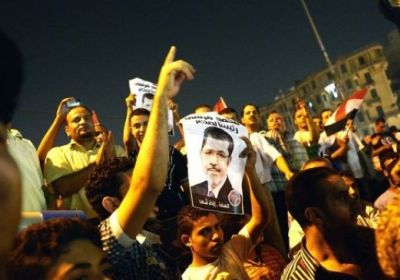 After an armed attack killed 16 Egyptian guards on the border with Israel in the Sinai Peninsula, President Mohammed Morsi sacked defence minister and head of the Supreme Council of Armed Forces (SCAF) Mohammed Tantawi, and his second in command, Sami Anan. The move is part of an ongoing battle that has taken place between the Muslim Brotherhood — main political force that emerged after the overthrow of former dictator Hosni Mubarak — and SCAF, which took governmental power after Mubarak stepped down.
After an armed attack killed 16 Egyptian guards on the border with Israel in the Sinai Peninsula, President Mohammed Morsi sacked defence minister and head of the Supreme Council of Armed Forces (SCAF) Mohammed Tantawi, and his second in command, Sami Anan. The move is part of an ongoing battle that has taken place between the Muslim Brotherhood — main political force that emerged after the overthrow of former dictator Hosni Mubarak — and SCAF, which took governmental power after Mubarak stepped down. -
Mohamed Morsi, the Muslim Brotherhood candidate for Egypt's presidential elections, was sworn into office on June 30. But confirmation of Morsi's win was overshadowed by protests and sit-ins at Cairo's Tahrir Square and around the country. Protesters are demanding the elected parliament be restored and extra constitutional powers the ruling junta has granted itself be rescinded. The electoral comission announced on June 24 that Morsi had beaten old-regime candidate Ahmed Shafiq in the June 16 and 17 poll with 51.7% of the vote.
-
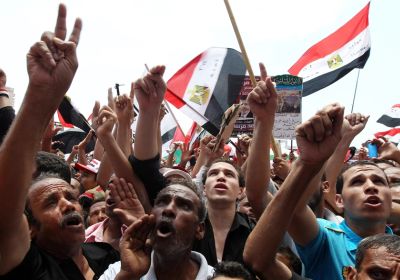 Official results were yet to be announced on June 24, but it appears Muhammad Morsi, the Islamist Muslim Brotherhood (MB) candidate, has won the second round of Egypt's presidential elections, held over June 16 and 17. The election took place amid huge protests in Tahrir Square and around the country against moves by the ruling Supreme Council of Armed Forces (SCAF) to dissolve Egypt's elected parliament.
Official results were yet to be announced on June 24, but it appears Muhammad Morsi, the Islamist Muslim Brotherhood (MB) candidate, has won the second round of Egypt's presidential elections, held over June 16 and 17. The election took place amid huge protests in Tahrir Square and around the country against moves by the ruling Supreme Council of Armed Forces (SCAF) to dissolve Egypt's elected parliament. -

Austin Mackell, an Australian journalist based in Cairo who has reported on the Egyptian revolution, speaks about his arrest by the regime, and Egyptian politics around the elections.
-
Egypt's second-round presidential elections between ex-regime figure Ahmed Shafiq and Muslim Brotherhood candidate Mohamed Morsi will go ahead after the High Constitutional Court (HCC) ruled on June 14 that Shafiq's candidacy was constitutional. The ruling declared that the Political Disenfanchisement Law, which barred ex-members of Mubarak's National Democratic Party (NDP) from holding high government offices, was unconstitional.
-
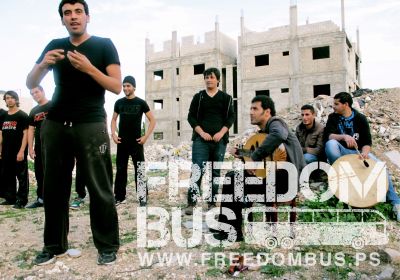 A crew of Palestinian actors and musicians from the Jenin-based Freedom Theatre toured Egypt in April. The aim of the tour was to conduct a series of “playback theatre” workshops and performances in Cairo and Alexandria. Playback theatre is an interactive theatre approach used as a tool for community building, public dialogue, cultural activism and trauma recovery. In a playback event, audience members share thoughts, feelings, memories and autobiographical accounts, and watch as a team of actors and musicians instantly transform these experiences into improvised theatre pieces.
A crew of Palestinian actors and musicians from the Jenin-based Freedom Theatre toured Egypt in April. The aim of the tour was to conduct a series of “playback theatre” workshops and performances in Cairo and Alexandria. Playback theatre is an interactive theatre approach used as a tool for community building, public dialogue, cultural activism and trauma recovery. In a playback event, audience members share thoughts, feelings, memories and autobiographical accounts, and watch as a team of actors and musicians instantly transform these experiences into improvised theatre pieces. -
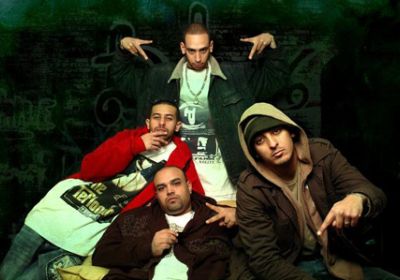
The Egyptian revolution has mobilised millions of people. It brought down the United States-backed dictator Hosni Mubarak. The struggle for democracy and equality continues. Countless songs dedicated to the uprising rocketed around the internet.
-
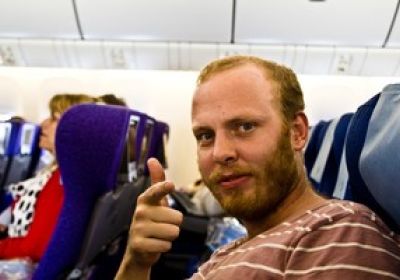 Australian journalist Austin Mackell, United States student Derek Ludovici and Egyptian translator Aliya Alwi are facing charges of inciting people to vandalise public property after being detained by the police in the Egyptian city of Mahalla El-Kubra on February 11.
Australian journalist Austin Mackell, United States student Derek Ludovici and Egyptian translator Aliya Alwi are facing charges of inciting people to vandalise public property after being detained by the police in the Egyptian city of Mahalla El-Kubra on February 11. -
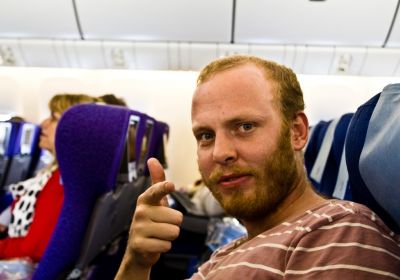
Australian journalist Austin Mackell, United States student Derek Ludovici, translator Aliya Alwi and veteran union activist Kamal al-Fayyumi were detained by the police in Mahalla El-Kubra, Egypt on February 11 while trying to interview workers in the city.
-
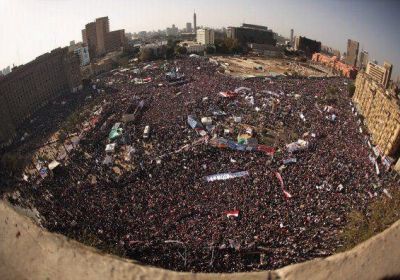 The streets of Cairo were full of protesters on January 27, two days after the first anniversary of the beginning of the revolution on January 25 last. The day was called “Friday of Pride and Dignity". The ruling Supreme Council of the Armed Forces (SCAF) was again defeated by the huge participation of Egyptians in the demonstrations. The protesters' slogans and chants demanded the overthrow of SCAF and direct transition of powers to the parliament. The attempts by SCAF to transform the anniversary of the anti-Mubarak uprising into celebrations were a failure.
The streets of Cairo were full of protesters on January 27, two days after the first anniversary of the beginning of the revolution on January 25 last. The day was called “Friday of Pride and Dignity". The ruling Supreme Council of the Armed Forces (SCAF) was again defeated by the huge participation of Egyptians in the demonstrations. The protesters' slogans and chants demanded the overthrow of SCAF and direct transition of powers to the parliament. The attempts by SCAF to transform the anniversary of the anti-Mubarak uprising into celebrations were a failure. -
Egyptian citizens have accused the police and military of failing to intervene on February 1 to stop clashes at an Egyptian football match that killed at least 74 people. Dozens of angry protesters sealed off Tahrir Square, the centre of the uprising that toppled former president Hosni Mubarak. Others blocked the street in front of the state TV building in central Cairo ahead of planned marches to the interior ministry to denounce the police force.